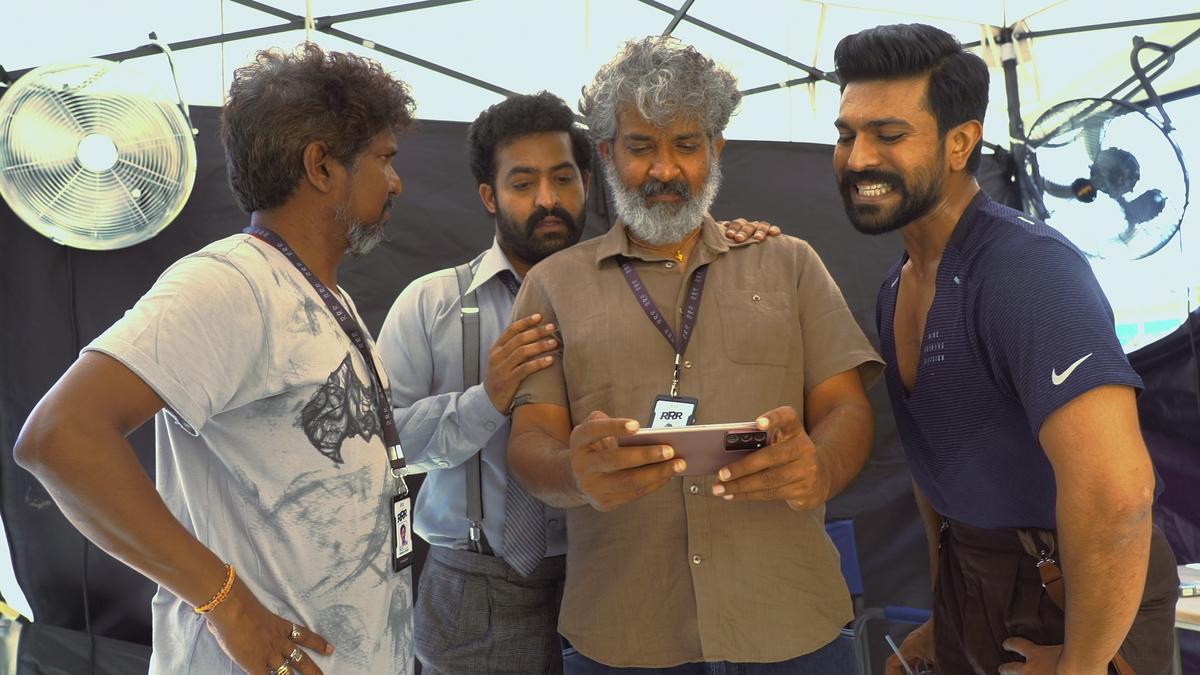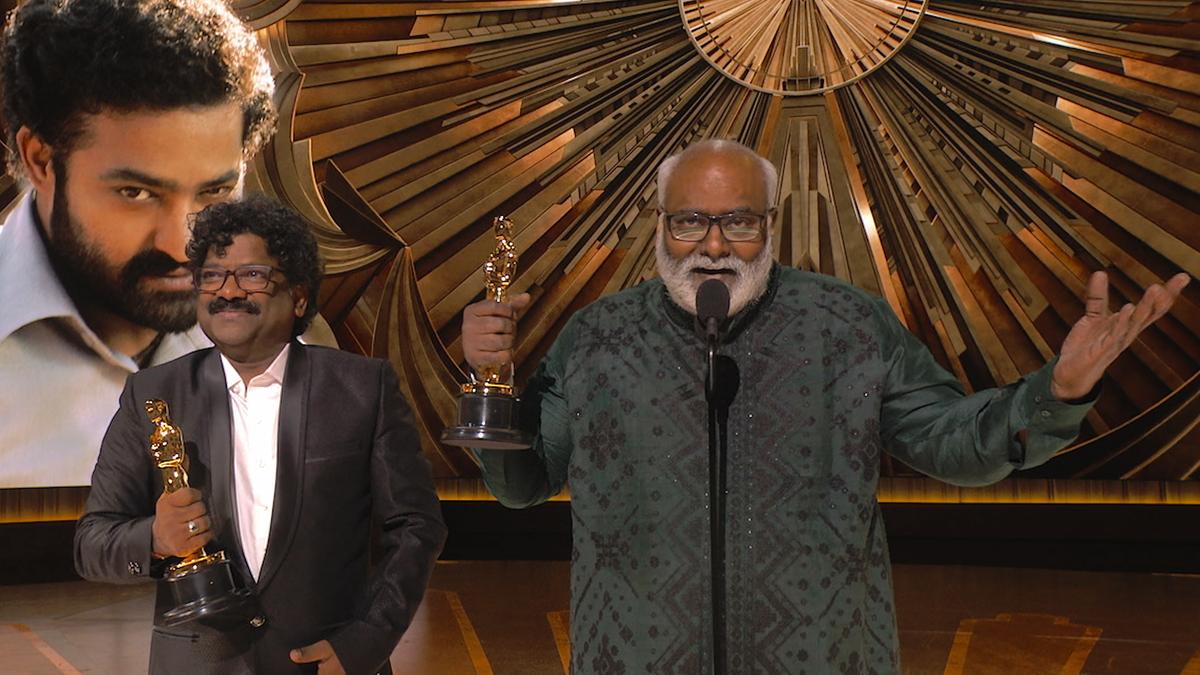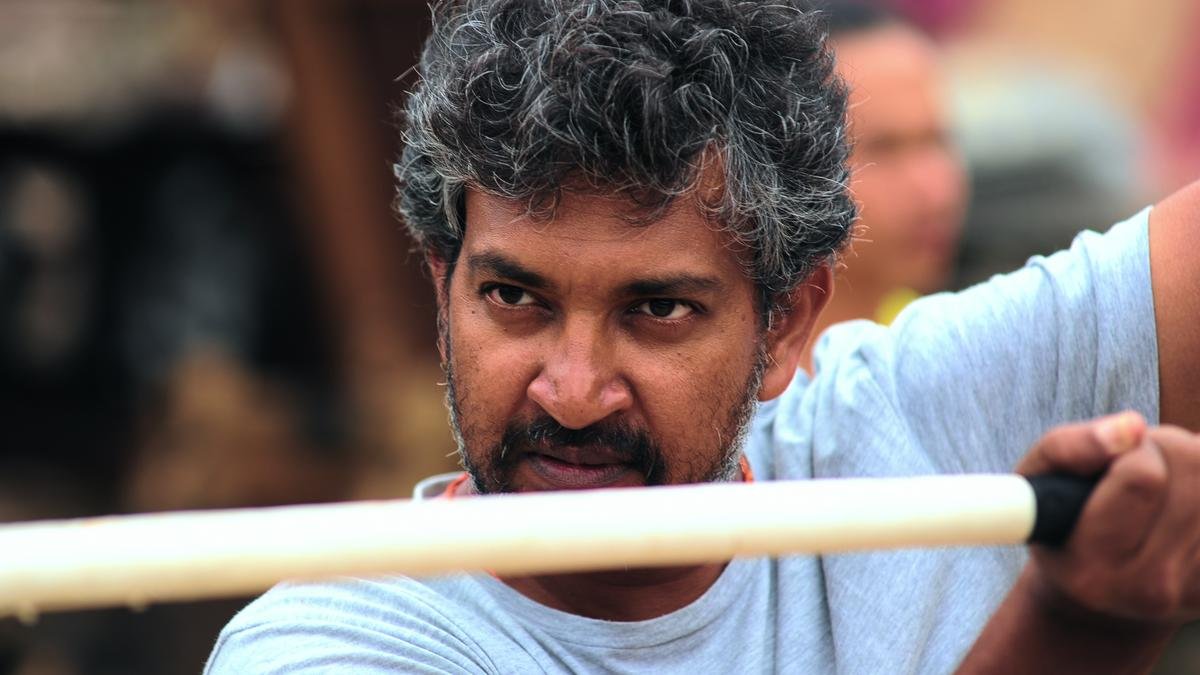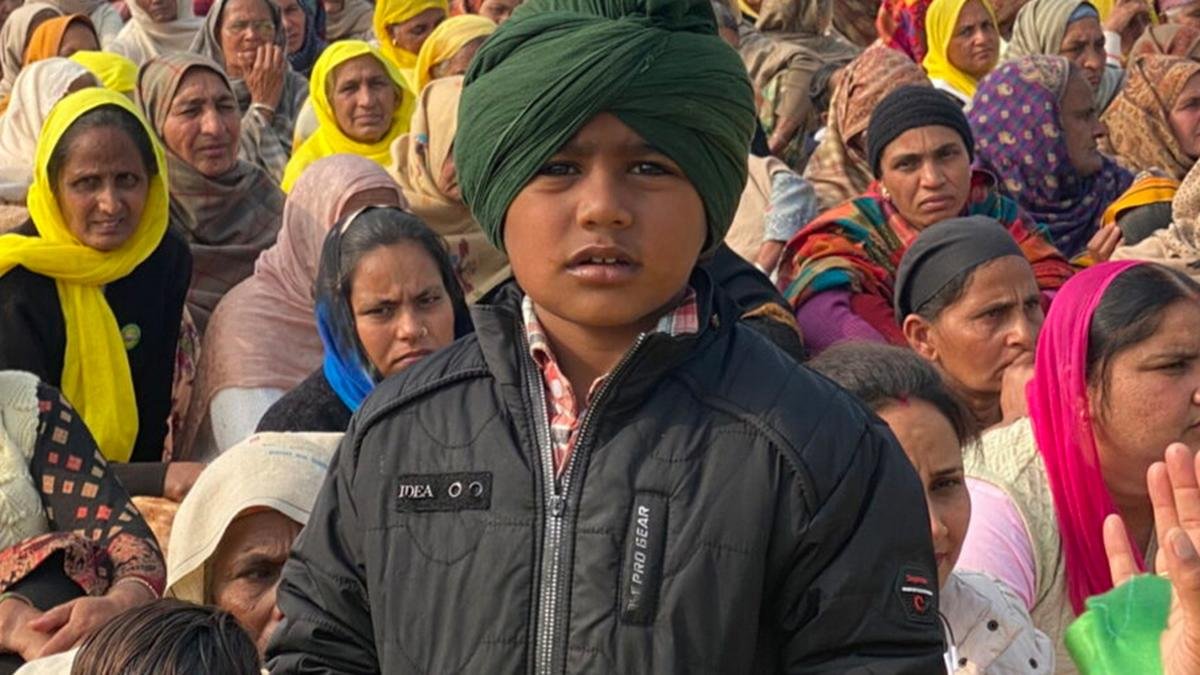
From ‘Modern Masters: SS Rajamouli’
| Photo Credit: Netflix
A few minutes into the docu-film Modern Masters: SS Rajamouli, producer-director Karan Johar declares that in contemporary Indian cinema, there is no bigger filmmaker than Rajamouli. The docu-film directed by Raghav Khanna, now streaming on Netflix, ushers viewers into the happenings on the sidelines of the screening of RRR (Rise, Roar, Revolt) at TCL Chinese Theatre, Los Angeles, where the audience cheers the larger-than-life entertainment, as Rajamouli and others take in the reactions. A screening of RRR in Tokyo, Japan, elicits similar euphoria. The documentary retraces the journey of Rajamouli, whose films Baahubali and RRR are globally celebrated, to understand what made him the most popular Indian showman of our times.
For those who have closely followed Telugu cinema and the rise of Rajamouli, some of the interviews featured in the documentary might seem familiar, yet, there is enough to chew on. Actors Prabhas, Rana Daggubati, NTR and Ram Charan offer insights into how Rajamouli is a stickler for detail and settles for nothing less than 100%. NTR describes Rajamouli as a born storyteller, while Ram Charan says that there are times when he views a Rajamouli film like a third person, in awe, even when he has acted in it.

Choreographer Prem Rakshit, NTR Jr, Rajamouli and Ram Charan on the sets of ‘RRR’
| Photo Credit:
Netflix
Produced by Applause Entertainment and Film Companion Studios, Modern Masters has film journalist and critic Anupama Chopra interviewing Rajamouli in Los Angeles and Tokyo, trying to explore his mindset. While Rajamouli calls himself a slave to storytelling and brushes aside the talk of him being referred to as ‘India’s James Cameron’, the documentary gets James Cameron to weigh in and share his views on Rajamouli.

Modern Masters: SS Rajamouli (English)
Director: Raghav Khanna
Cast: SS Rajamouli, James Cameron, Prabhas, Ram Charan and Jr NTR
Runtime: 74 minutes
Storyline: A documentary on revolutionary filmmaker S. S. Rajamouli’s journey from ‘Student No. 1’ to ‘RRR’
The documentary retraces Rajamouli’s journey from Kovvuru in Andhra Pradesh. Interviews with his family members, including his father and screenwriter Vijayendra Prasad, and older cousin and music composer M M Keeravani, offer insights into the director’s formative years. Unseen photographs of the early years of Rajamouli and his family members, interspersed with anecdotes of how storytelling was an integral part of growing up, lay the foundation for the journey ahead.
Rajamouli’s entry into the entertainment industry, from directing the television serial Santhi Nivasam (1999) to making his first feature film, Student No. 1 (2001), serves as the backdrop to introduce us to the early journey of composer Keeravani and actor NTR Jr.

Lyricist Chandrabose and music composer M M Keeravani
| Photo Credit:
Netflix
The documentary scores by weaving together the personal and professional stories of Rajamouli and his family members, many of whom have taken on varied responsibilities in filmmaking. Modern Masters tries to understand what it entails for all the family members to work together. A few lesser-known details also come to the fore. Rajamouli’s courtship with his wife Rama, the bond he shares with his sister-in-law Srivalli, who is a mother figure to the family, and the fun details of a family vacation humanise the story of the director.
While Modern Masters celebrates Rajamouli, it does not hold back from addressing uncomfortable topics. How does the family deal with Rajamouli’s atheism? What does Rajamouli have to say about the criticism of casteism in Baahubali or the depiction of the romance between Shivudu (Prabhas) and Avantika (Tamannaah Bhatia)?
The fun moments come from the behind-the-scenes footage that shows Rajamouli on the sets of Magadheera, Baahubali and RRR, where he enacts not only the emotional scenes but also the action scenes, strapped in harnesses. There are information nuggets as well. Did you know that Magadheera (2009) was the first Telugu film to have a visual effects supervisor in its title credits?
Going beyond discussing the scale of Rajamouli’s films, the docu-film touches upon how he understands the rules of cinema, only to break them. A case in point is a scene in Eega. The anecdote also serves to explain where Rajamouli scores over other filmmakers who aspire to match his scale and vision — in putting forth a narrative that establishes an emotional connection with the audience.
The one-hour 14-minute long film serves as an introduction to Rajamouli and his films for a global audience, acknowledging his biggest films such as Magadheera, Eega, Baahubali and RRR, while it doesn’t discuss his other blockbuster Telugu hits such as Yamadonga, Chatrapathi or Vikramarkudu. Perhaps there could have been at least a passing mention of these films and the fact that the filmmaker has not had a single box office setback, to give a more wholesome insight into the fimmaker’s success.
Modern Masters: SS Rajamouli is currently streaming on Netflix



